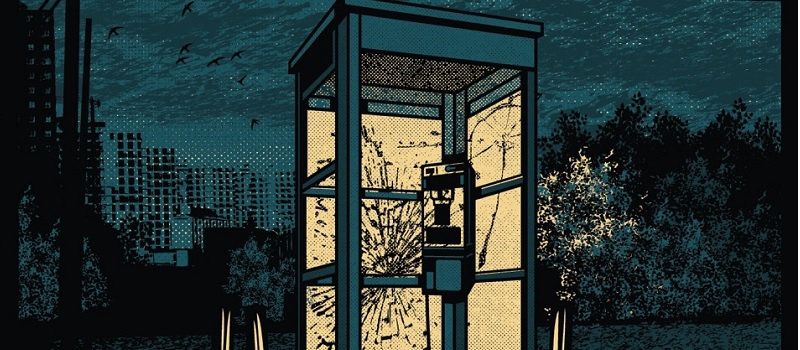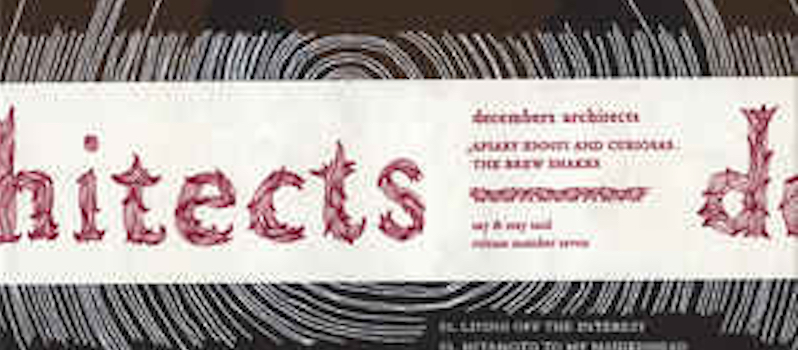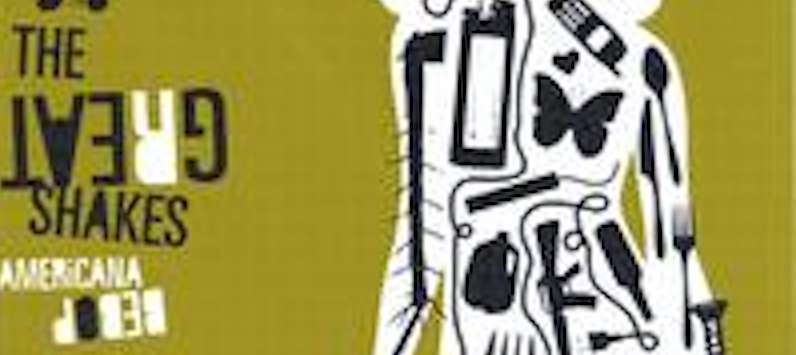The Vanities peel open the stage curtain of EP for the Lord with more of a declaration of intent than you might initially expect or even realize. After a bluesy introductory progression of bent, palm-muted notes on an electric guitar, the bass and drums get in a quick one-two punch before vocalist/guitarist Rob Blake shouts “Hey!” and the listener is launched full-throttle into the heart of “Back to School Haircut,” an energetic pop-punk gem where Blake begins to stake his claim as Mr. Mike Patton’s vocal heir-apparent.
The song’s got more than a few great moments – from Blake’s spirited delivery and Joseph Reilly’s jazzy lead guitar hooks to Joe Connell’s punchy bass and John Sancilio’s sometimes-spare but often-pounding percussion.
But the underlying message that really seems to sell the song (and much of the record, as it were) is that The Vanities know how to carefully construct their punk and rock refrains to maximum effect, yet they also thrill at the opportunity to have a fun time doing it.
It’s hard to recall an indie-rock record in recent years that got as much mileage out of that well-placed “Yeah!” or “Hey!” – without cutting corners or passing off half-hearted songs – as The Vanities’ latest six-song offering.
Listening to the disc, recorded/mixed by Blake and self-released by the New Jersey-based outfit, it’s also apparent that The Vanities are ready to take their stab at bigger beasts. Each song has a self-conscious vitality to it, a studio sheen and radio-readiness that betrays the band’s clear debt to early- to mid-90’s “alternative” rock acts like Faith No More, Nirvana, and even, albeit less explicitly, Smashing Pumpkins.
But, for as much as the swaying guitars and semi-wailed, high-in-the-mix vocals of “Moil” may pay somewhat-unconscious homage to Siamese Dream or Nevermind, the band also is clearly rooted in more multi-dimensional and angular fare.
Take the pounding “No Vacancy,” where Connell/Sancilio get things boiling with their best David Wm. Sims/Mac McNeilly impersonation before Blake chimes in with that murderous whisper-narration that Patton first started employing around Angel Dust.
The song then wanders through peaks and valleys of soft/loud/soft/loud dynamics, driving refrains complete with crunchy, distorted guitars and carefully placed screams, and solos that make up in fury and spirit what they may seem to lack in campy chops or stadium-sized scope.
“Rosewater” – one of the EP’s shortest tracks at just two minutes, 23 seconds – is another fine example of the band’s approach.
Again, jazzy, wandering guitar lines from Reilly lead into spirited vocals from Blake and an unusually spare chorus, complete with airy backing vocals, that manages to pound its way into your memory without resorting to a wall of distortion or studio-engineered gimmicks. Ditto “Engine Orange Jade,” where Blake’s sense of vocal playfulness reaches a peak of sorts as he punctuates a repeated delivery of the song’s title with a muted – but still borderline-falsetto – laugh.
It feels bizarre to listen to it a few times through but it also feels, quite honestly, like it works.
The refrains that close the song – all pummeling power chords, precise drumming, and sandpaper-throat roars of phrases like “Foreseeing the past” and, even more simply, just “You” – make it among the more vicious and biting of the six tracks on this too-short recording.
And then there’s “You’ve People,” the dynamic post-punk shape-shifter that closes EP for the Lord. On it, after a brief, tension-building math-rock intro, Reilly’s piercing guitar interjections play perfectly to carefully paced drums and Blake’s increasingly bombastic performance, which starts to call to mind Ours’ under-acknowledged Jimmy Gnecco as much as it does the carnivalesque theatrics of Patton or the uncaged passions of Cobain or Yow.
The song’s among the least conventional of EP for the Lord, cranking up the soft/loud/soft/loud factor to 11 and employing quick shifts between movements instead of just toying with the verse-chorus-verse mold laid out elsewhere on the disc. In the end, it’s Blake’s conviction that keeps the track from falling flat or feeling like a rough sketch of a work-in-progress, whether it’s his pained whine of a line like “Duct tapes and safety pins / mend the shape that she ‘s in now” or the multi-tracked resolve of the obvious closing sentiment, “Fading out and away now.”
Fading out and away? For a band showing this kind of promise this early in its game, let’s hope not.- Delusions of Adequacy, Sept. 24, 2004




